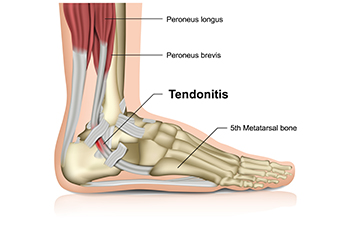
Achilles tendonitis, a common woe for runners, arises from inflammation in the strong tendon that connects the calf muscles to the heel bone. Typically linked to the runner's trifecta of too much, too fast, and too soon, recognizing symptoms of Achilles tendonitis is vital for timely intervention. These symptoms include initial stiffness that dissipates with warming up, in addition to pain and swelling near the heel. The runner may experience limited ankle flexibility during physical activities, and notice redness along the tendon. Other symptoms can include a distinct burning sensation, palpable scar tissue lumps, and an audible cracking or popping sound during ankle movement. Runners, constantly pushing their limits, are particularly prone to Achilles tendon injuries due to the repetitive stress involved in each stride. Speed and uphill training can increase the strain on the tendon. This can lead to overworking, tightening, and inflammation, which may result in Achilles tendonitis. If you are experiencing symptoms of Achilles tendonitis, it is suggested that you schedule an appointment with a podiatrist for a complete examination and treatment suggestions.
Achilles tendon injuries need immediate attention to avoid future complications. If you have any concerns, contact one of our podiatrists of Pocono Foot & Ankle Consultants. our doctors can provide the care you need to keep you pain-free and on your feet.
What Is the Achilles Tendon?
The Achilles tendon is a tendon that connects the lower leg muscles and calf to the heel of the foot. It is the strongest tendon in the human body and is essential for making movement possible. Because this tendon is such an integral part of the body, any injuries to it can create immense difficulties and should immediately be presented to a doctor.
What Are the Symptoms of an Achilles Tendon Injury?
There are various types of injuries that can affect the Achilles tendon. The two most common injuries are Achilles tendinitis and ruptures of the tendon.
Achilles Tendinitis Symptoms
- Inflammation
- Dull to severe pain
- Increased blood flow to the tendon
- Thickening of the tendon
Rupture Symptoms
- Extreme pain and swelling in the foot
- Total immobility
Treatment and Prevention
Achilles tendon injuries are diagnosed by a thorough physical evaluation, which can include an MRI. Treatment involves rest, physical therapy, and in some cases, surgery. However, various preventative measures can be taken to avoid these injuries, such as:
- Thorough stretching of the tendon before and after exercise
- Strengthening exercises like calf raises, squats, leg curls, leg extensions, leg raises, lunges, and leg presses
If you have any questions please feel free to contact our offices located in Stroudsburg, Nazareth, and Easton, PA . We offer the newest diagnostic tools and technology to treat your foot and ankle needs.




